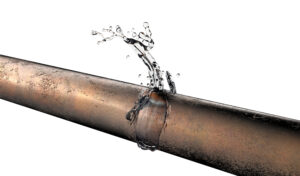
If your home is being overrun by a bad smell, there’s a possibility that your plumbing is the culprit.
When unpleasant odors waft through your home consistently, consider if your plumbing system is a culprit. Plumbing failures or lack of proper maintenance can cause different smells to emanate from your pipes or drains. As annoying as those smells might be to you and your loved ones, they can also indicate that there are particular plumbing issues that you need to correct. Here is a look at what is causing bad smells in your plumbing that require the attention of a skilled plumber.
Sulfur Odors
If you smell rotten eggs throughout your home, sulfur-based gases could have infiltrated your water supply. Hydrogen sulfide, a standard sewer gas, often accounts for this distinctive odor. Small amounts of this gas don’t cause a foul smell, but larger concentrations can produce an overwhelming rotten-egg smell while also corroding your pipes.
Sewer gas can prove toxic and flammable. Therefore, you should have your plumber check this smell out as soon as you discover it for safety’s sake. The wax ring at your toilet’s base might have developed a weakness that enables sewer gas into your home. Your plumber can replace the wax ring, fixing the problem.
A sulfurous rotten egg smell can also stem from the various P-traps in your plumbing system. A P-trap’s bent shape typically holds a certain amount of water at all times, providing a natural barrier to bacterial or sewer gases. If you have a dry P-trap, you either need to use this drain more often or check for leaks.
The sulfur smell’s location can also help you pinpoint the root cause. For example, if you only smell it when you use hot water, you might have a problem with your water heater’s corrosion control pad. You should inspect your underground sewer line if you smell it outside the house.
Garbage Odors
Rotting garbage tops the unpleasant odor of rotten eggs. This smell usually comes from bacteria feeding on organic matter in your house. P-traps, shower drains, and other plumbing pipes that collect organic material makes an ideal breeding ground for such bacteria.
Not everything you put down a garbage disposal is discarded properly. Tougher foods might present too great a challenge for the blades to handle, leading to unpleasant-smelling clogs. Old food debris in kitchen sinks and garbage disposals can also have a foul odor.
However, food debris isn’t the only culprit of bacteria. In showers and bathroom sinks, a combination of soap scum, skin oils, and other residue creates a substance known as biofilm that lines pipes. Also, if the smell you notice accompanies standing water or slow drainage, schedule professional drain cleaning services.
Moldy Odors
A musty smell in your home often stems from mold growth. Mold growth smells unpleasant but can cause respiratory problems and costly home damage. Mold spores thrive in damp environments such as air conditioning ducts, evaporator pans, and the water in and surrounding plumbing systems.
Also, mold feeds on and decomposes organic matter, like wood and drywall. Even a tiny plumbing pipe or seal leak can moisten these surfaces leading to mold growth. The moldy smell might alert you to a plumbing problem that needs immediate attention before the mold can do more damage.
Not all smells originate from plumbing problems. However, discovering accompanying symptoms can narrow them down to this source. Examples include tripping or ticking noise from a leak behind the wall, discolored or damp stains, and weird changes in your water pressure or utility bill.
Call Mahon Plumbing Today
If you still have more questions regarding your plumbing, we here at Mahon Plumbing are here to help. We have been serving the wider Baltimore area since 1994, so we have 25 years of experience to back up our fantastic service! Call us at our Baltimore location at 410-766-8566 or our Pasadena location at 410-636-7944. Be sure to keep up with us on social media by following us on Facebook or Twitter.
